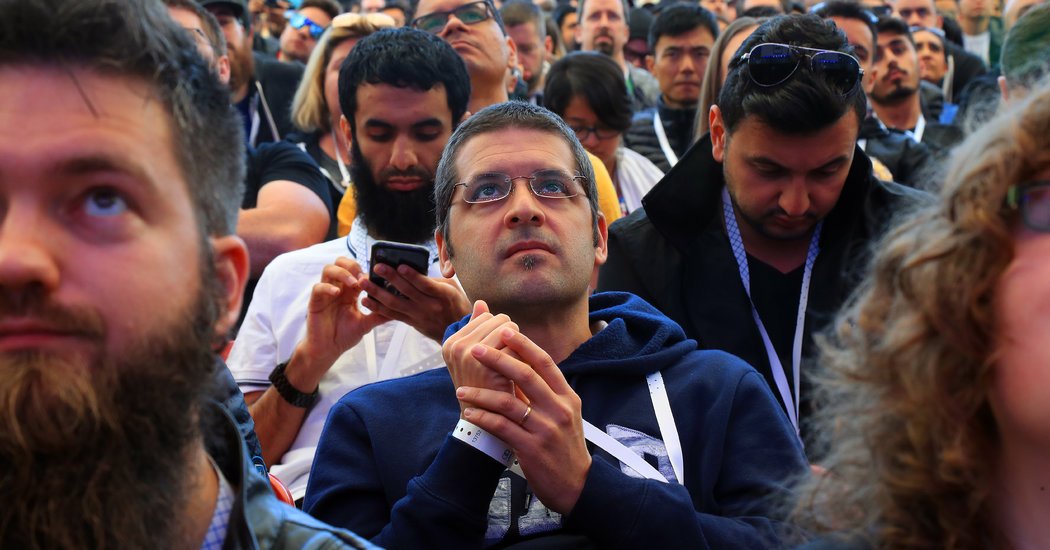Mr. Pichai said artificial intelligence had uncovered breakthroughs in health care that humans would not have spotted. An artificial intelligence program running on Google’s so-called machine-learning software that helps diagnose eye disease from a retina image found that the same photo could be used to identify cardiovascular risk.
It is the type of meaningful breakthrough that Google executives love to promote, but it has little to do with Google’s core web products or the way it makes money. But even those services are getting an artificially intelligent makeover.
Credit
Jim Wilson/The New York Times
The company demonstrated how its Google Assistant computer software is now capable of calling a person at a hair salon or a restaurant to make a reservation. Google said artificial intelligence had allowed the computer’s voice to sound more human — complete with “uhs” and natural pauses, as well as logical follow-up questions — so the person at the other end does not know that he or she is speaking to a computer.
Improvements in A.I. have allowed Google’s computer assistant to have different voices and accents, including the ability later this year to have the singer John Legend tell you the day’s weather.
The company also demonstrated a new artificially intelligent feature in Gmail, called Smart Compose, that starts to suggest complete sentences in email as you type. Google said this would help users complete emails more quickly with fewer spelling and grammar mistakes. It plans to add this feature over the next few weeks.
But one of its most significant A.I. breakthroughs will never be seen by consumers.
Google said it would roll out a new processing chip to power many of its machine-learning programs. A.I. programs require a great deal of computing power, and custom-made chips housed inside data centers to handle this data crunch have fueled an arms race among the tech industry’s biggest companies. Google said its new chip would be eight times more powerful than the chip it introduced last year.
Mark Hung, a research vice president at the research firm Gartner, said the conference demonstrated how much Google relied on A.I. to make its products stand out.
“Almost everything Google is announcing now is A.I. related,” he said. “Google has a lead on artificial intelligence over many of its competitors, and it’s going to use that as a weapon to advance their products forward.”
In keeping with a theme of a more responsible Google, the company also introduced features aimed at addressing how technology is burrowing deeper into our lives — sometimes in negative ways.
Google unveiled a series of “digital well-being” updates in the next version of its Android smartphone software. They include a timer that allows a person to limit time spent on certain apps each day and a Do Not Disturb feature that silences phone calls and notifications, and that can be turned on by placing the smartphone screen face down on a table.
The company is also trying to encourage good manners with its Google Assistant. The new “pretty please” feature, which encourages children to use “please” when asking for assistance, aims to address the concern that children are learning to speak impolitely because they are talking to more digital assistants.
By DAISUKE WAKABAYASHI
https://www.nytimes.com/2018/05/08/technology/google-io.html
Source link


